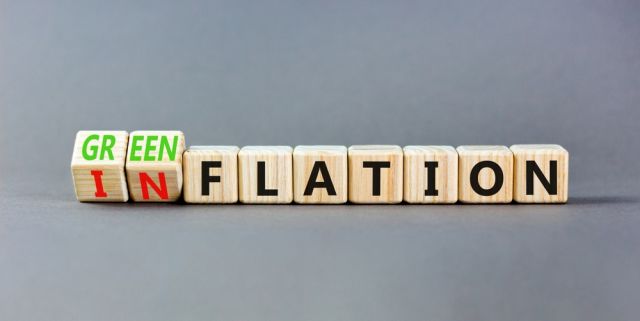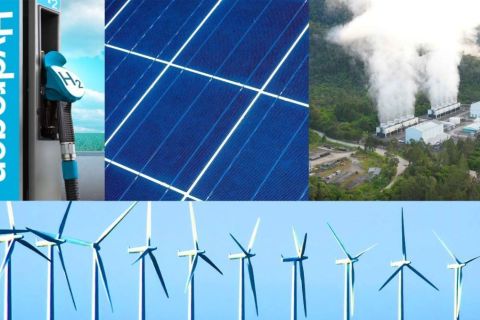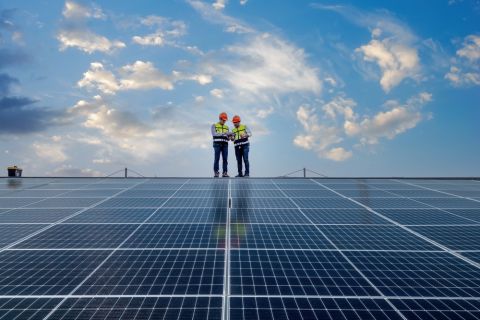
In developing its high-case and low-case energy-demand scenarios, the IEF examines forecasts from a myriad of sources, including OPEC and the International Energy Agency, which alone has a half-dozen scenarios, including a “famous net-zero” one, said Joe McMonigle at CERAWeek by S&P Global. (Source: Shutterstock)
When the public starts to connect climate-change policy to rising energy prices and volatility, “we're in big trouble,” the International Energy Forum’s secretary general said on March 20.
“We've seen a lot of rising costs and volatility,” said Joe McMonigle at CERAWeek by S&P Global. A lot of that is driven by project-risk uncertainty as a result of governments’ energy-transition policies.
“We need to invest in upstream oil and gas.” The IEF and the Organization of Petroleum Exporting Countries (OPEC) are “the only ones that talk about investing in oil and gas—[and] for this whole reason: to manage a transition and keep costs low.”
Understanding that oil and gas are essential going forward no matter public policy is essential in the success of a transition, he added.
“If you care about the energy transition—[that is] if you care about the climate—you want to make sure we manage it to keep prices low so we can grow the economy and invest in new technologies,” McMonigle said.
In developing its high-case and low-case energy-demand scenarios, the IEF examines forecasts from a myriad of sources, including OPEC and the International Energy Agency, which alone has a half-dozen scenarios, including a “famous net-zero” one, McMonigle said.
In these, the difference between the highest and lowest forecasts for oil in 2050 is about 100 MMbbl—"the size of today's oil market, give or take.”
If trying to make investment or policy decisions, “what do you do with that kind of uncertainty?”
Oil and gas investments still need to be made, but the policy messaging disfavors it. “It's not as clear … to the public. The transition is not going to be easy.”
‘We will decarbonize after we carbonize’
The IEF was founded in 1991 by energy-consuming and -producing countries, currently totaling more than 70, and is currently based in Riyadh, Saudi Arabia. Members represent the “global north” of developed countries and the “global south” that are developing or undeveloped.
At the last two COP (Conference on the Parties) meetings, the south is “becoming increasingly louder about what they view as [being] sort of unfair goals set for them,” McMonigle said.
One African minister told the developed countries pushing climate caps that “we will decarbonize after we carbonize.”
There is a succinct disconnect between the energy haves and the have-nots. “I mean Heathrow airport in London uses more energy than the entire country of Sierra Leone. It is just a disconnect.”
Developed countries can transition because they have infrastructure. “But in the developing world, you can't do that.
“I think we're going to keep hearing at COP meetings and other big energy events the developing world raising their voice,” he said.
“And the days of going to COP meetings and just singing from the same song sheet to be nice, I think those days are over.”
Recommended Reading
Initiative Equity Partners Acquires Equity in Renewable Firm ArtIn Energy
2024-04-26 - Initiative Equity Partners is taking steps to accelerate deployment of renewable energy globally, including in North America.
Energy Transition in Motion (Week of April 26, 2024)
2024-04-26 - Here is a look at some of this week’s renewable energy news, including the close of a $1.4 billion decarbonization-focused investment fund.
No Silver Bullet: Chevron, Shell on Lower-carbon Risks, Collaboration
2024-04-26 - Helping to scale lower-carbon technologies, while meeting today’s energy needs and bringing profits, comes with risks. Policy and collaboration can help, Chevron and Shell executives say.
Solar Sector Awaits Feds’ Next Move on Tariffs
2024-04-25 - A group of solar manufacturers want the U.S. to impose tariffs to ensure panels and modules imported from four Southeast Asian countries are priced at fair market value.
Solar Panel Tariff, AD/CVD Speculation No Concern for NextEra
2024-04-24 - NextEra Energy CEO John Ketchum addressed speculation regarding solar panel tariffs and antidumping and countervailing duties on its latest earnings call.






